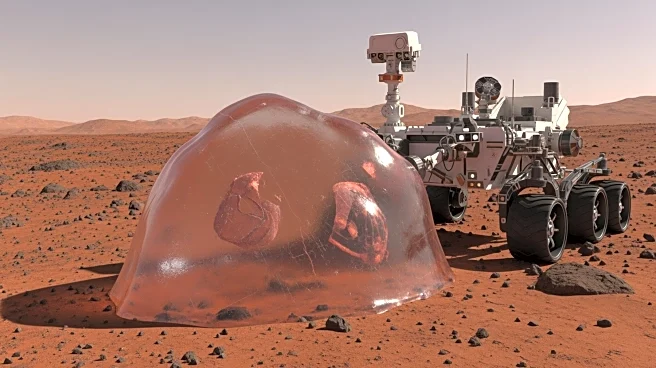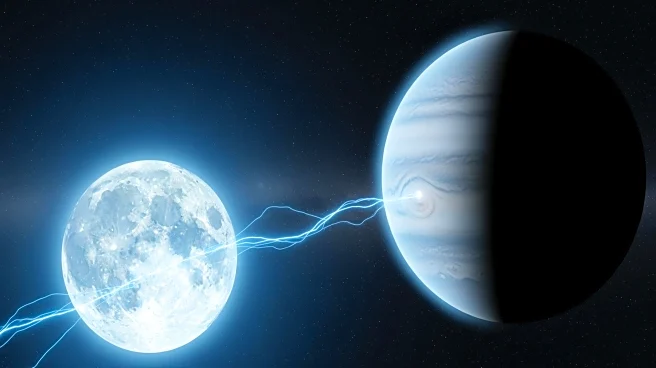What's Happening?
A recent study by researchers from NASA Goddard Space Flight Center and Penn State University suggests that future Mars missions should focus on searching for microbial life or its remains within the planet's
ice. The study involved simulating Martian permafrost and ice cap conditions in a laboratory, where *Escherichia coli* samples were exposed to cosmic radiation equivalent to 50 million years on Mars. The results showed that over 10 percent of amino acids from *E. coli* remained intact in pure water ice, significantly outperforming samples with Mars-like sediment, which degraded much faster. This finding indicates that pure ice on Mars could be an ideal location to search for preserved biological material.
Why It's Important?
The study's findings have significant implications for the search for life on Mars. By identifying ice as a potential preservative of organic material, future missions can be better directed to areas where life might be more likely to be found. This could enhance the efficiency and success of Mars exploration missions, potentially leading to groundbreaking discoveries about the existence of past life on the planet. The research also highlights the need for advanced drilling technology to access subsurface ice, which could be crucial for future missions aiming to uncover signs of life.
What's Next?
Future Mars missions may incorporate the study's findings by prioritizing the exploration of ice-rich regions. This could involve developing new technologies capable of drilling into the Martian ice to retrieve samples for analysis. The results of such missions could provide critical data to support or refute the hypothesis of past life on Mars, influencing future exploration strategies and scientific understanding of the planet's history.









